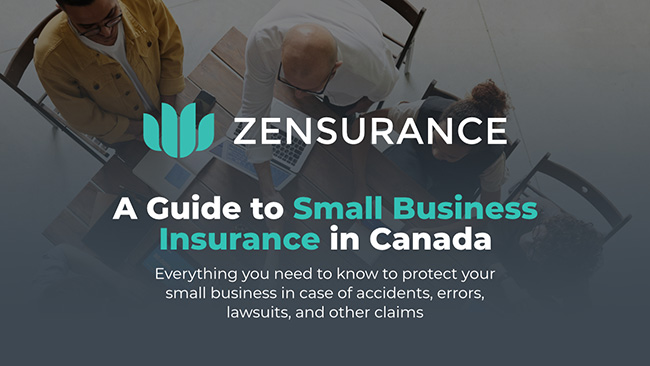Starting a business in Ontario presents a world of opportunities. As a prime destination for entrepreneurs in Canada, Ontario attracts numerous new companies annually, drawn to its vibrant economic landscape.
Ontario has the highest population among provinces and territories, comprising nearly 50% of the country’s total population. Ontario is also a significant economic powerhouse, with a remarkable gross domestic product (GDP) of $970 billion in 2021, representing almost 40% of our national GDP.
Thriving manufacturing and service sectors, and Canada’s “Silicon Valley” in Kitchener-Waterloo, foster conducive business environments. Ontario offers easy access to a substantial consumer base and a well-developed transportation network, including planes, trains, and roads. With 14 border crossings into the U.S. from Ontario alone, businesses can seamlessly engage in importing and exporting activities.

Related Posts
Sign Up for ZenMail
"*" indicates required fields
Categories
However, to ensure your small business thrives, taking the proper steps and registering your venture in Ontario is crucial. That helps provide you with essential legal protection, name recognition, and improved access to funding and capital opportunities to grow and succeed.
Moreover, registering your business in Ontario opens doors to a bustling marketplace with abundant growth opportunities and convenient access to resources. Let’s go over the steps you need to take.
Determine Your Business’s Structure
Before registering your business in Ontario, you’ll need to identify your business’s structure. Each structure has distinct implications for liability, taxation, and management, so it is of utmost importance that you carefully assess which aligns best with your business goals. Each has unique advantages and disadvantages, especially in how it affects personal taxation.
The four main types to consider are:
1. Sole Proprietorship
This is the simplest type of business structure that one person owns and operates. It lets you run a business without a legal distinction between you and your organization. However, as a result, you file any income earned on your tax return. As the owner, you’re personally liable for debts and liabilities.
2. Partnership
Can be general or limited, suitable for businesses owned and managed by two or more people. Not considered distinct legal entities; thus, any income received is filed on your personal tax returns, and partners are jointly liable for debts and liabilities. A partnership agreement usually determines each person’s ownership and commitments (think labour or capital).
3. Corporation
Separate and distinct legal entity from its owners, provides more liability protection for owners (not personally responsible). However, it is more complex and requires Canadian citizens or permanent residents as directors.
4. Co-operative
A co-op is a democratically controlled business owned by members, each having one vote — regardless of the capital invested. Financed through membership fees, equity sales, and loans, members share in the profits and losses of the business or opt as a group to retain the earnings for future expansions. In Canada, co-operatives often come in one of four categories: consumer, producer, worker, and multi-stakeholder co-operatives, which serve a diverse set of people. Commensurate with the benefits, registering a business is less expensive than incorporation.
There are no restrictions on your status in Canada (i.e., being a Canadian citizen or permanent resident) to be eligible for sole proprietorship or partnership business registration in Ontario. However, the business must have a physical address in Ontario.
Furthermore, eligibility for incorporation requires that at least 25% of the corporation’s directors must be Canadian citizens or permanent residents.
How to Do a Business Name Search in Ontario
To register your business in Ontario, you must have a name for your business, which calls for doing a business name search. Selecting a unique business name is crucial for marketing and identity, so get creative and research to develop a unique and descriptive business name that aligns with the brand aesthetic.
Registering the business name is necessary to ensure your chosen name is not already used or trademarked. That makes conducting a thorough name search necessary.
You can search online for a business name on the Ontario Business Registry or the Ontario-filtered NUANS (Newly Upgraded Automated Name Search) database to avoid disputes with existing businesses and comply with legal requirements. The search will show you if the business name you want is already taken or if available and distinguishable from other registered entities. You can also search the federal NUANS database of registered business names, but it will not be accepted for registration.
You can further perform business name searches through ServiceOntario via their business name registration system and Business Registration Online. Business name searches usually cost around $25.
How to Register a Business Name in Ontario
Once you have chosen a business name that is not already taken, your business registration options in Ontario are to register at a provincial or federal level.
Provincial registration is by far the more straightforward solution. Still, it will offer less name protection and complexity in operating across Canada’s provinces. You can file a Business Name Registration application with the Ontario Business Registry via the Ontario Business Registry website, by mail, or through the ServiceOntario online or in-person portal.
You can expect registration to be reasonably fast and efficient; often, the process can be completed on the same day if submitted before 3 p.m. Eastern time on any weekday.
There are consequences of non-registration. Failure to do so can result in substantial fines, as outlined in the Ontario Business Names Act. Penalties range from $2,000 for sole proprietors/partnerships to $25,000 for corporations. Ensuring timely registration is crucial to avoid these potential financial consequences. A trademark is still needed for exclusive protection, as registration alone does not guarantee it.
How Much Does Registering a Business in Ontario Cost?
The cost of registering a business in Ontario depends on the type of business.
Sole proprietorships and general partnerships are currently $60 (mail-in or in-person registration costs $80), whereas a limited partnership would cost you $210 and $300 for a corporation. Once paid, the registration is valid for five years and can be renewed within 60 days after expiration.
There are also costs associated with checking the business name availability.
What Types of Business Registrations Are There in Ontario?
There are a few types of business registrations in Ontario:
- Basic registration: The most common type, providing a business number (BN) to operate in Ontario without the ability to collect HST/GST.
- Full registration: Allows operation in Ontario and the ability to collect HST/GST.
- Enhanced registration: Provides additional benefits, such as opening a business bank account and obtaining a business credit card.
In Ontario, registration provides two similar numbers that can be assigned to a business.
The Ontario Business Identification Number (BIN) is a nine-digit identification number for business registrations (sole proprietorship, partnership, or corporation) received from Service Ontario. It differs from the Ontario Business Number (BN), a nine-digit tax identifier number only applicable when applying for HST, payroll, and other tax purposes issued by the Canada Revenue Agency. Not all businesses need a BIN.
What Are the Benefits of Registering a Business in Ontario?
Registering your business in Ontario is valuable, providing legal recognition and protection. Additional benefits include:
- Limited liability protection for owners: When your business is registered as a corporation, your personal assets are protected from the debts and liabilities of your business.
- Opening a business bank account and getting a credit card makes accepting payments and paying bills more accessible and builds your business credit history and credit score.
- Access to financing: Obtaining financial services for your business will be easier.
- Access to benefits, programs, and services: There are many government programs and services available to Ontario businesses, such as grants, loans, and tax breaks.
- Credibility: Registering your business will enhance credibility and trust with customers and suppliers.
- Separation of personal and business liabilities (for corporations).
What Information Do You Need to Register a Business in Ontario?
When registering your business in Ontario, the information you will be asked to provide will vary depending on your business structure. However, you will typically need to be prepared to share the following:
- Your name, address, and contact details
- Your business name
- Your business structure type
- Your business address
- Your business activity description (the nature of your business)
- Your business owners, directors, and shareholders by name and contact details
- Your Social Insurance Number (SIN) for individuals or your Business Number (BN) for corporations
Do You Need an HST Number to Register a Business in Ontario?
Whether you need a harmonized sales tax (HST) number for your business in Ontario depends on how much you expect to earn in gross revenue within 12 months.
If your business is a sole proprietorship or partnership earning less than $30,000 annually, you can choose to register for an HST number, but it is optional. However, if you’re an incorporated business with annual earnings that exceed that amount, you must register for an HST number and collect sales tax to be remitted to the government.
You can do so online at the Canada Revenue Agency (CRA) by phone, mail, or fax. For online access, sign up for a CRA MyBusiness Account, where you can register for a tax account, a payroll deduction account, a corporate income tax account, and more.
Does a Startup In Ontario Need Business Insurance?
Conducting thorough research and securing appropriate insurance coverage is crucial during the business registration process. Insurance protects your business and reputation from harm or loss. The type of insurance policy you should get depends on what you do.
For comprehensive coverage, consider the following coverages for your policy:
- General liability insurance covers your business’s daily operations from third-party bodily injury or property damage claims.
- Professional liability insurance, or errors and omissions (E&O) insurance, protects you from professional negligence claims related to your services.
- Product liability insurance is essential if you manufacture, distribute, or sell physical goods (including food) in person or online. It covers you for third-party bodily injury or property damage claims from someone who bought your product.
- Commercial property insurance shields you from the cost of damages to your business property and its contents if damaged by fire, water, a natural disaster, theft, or vandalism.
- Commercial auto insurance is a must-have for organizations with business vehicles. Private-passenger car insurance does not cover damages to a vehicle used for business purposes.
- Cyber liability insurance is vital for small businesses that have websites, use email, have a point-of-sale (POS) system, and store confidential customer data. It helps you recover quickly if your business suffers a cyber-attack or data breach – an increasing threat to any small business.
- Directors and officers (D&O) insurance, or management liability insurance, is recommended for small businesses with a board of directors to protect them if they’re named in a third-party lawsuit.
Creating a comprehensive business insurance policy that adequately addresses your risks may include other types of insurance.
If you need help, speak to a Zensurance broker about your specific needs. Our brokers are risk mitigation and insurance experts who can help you identify the right policies to safeguard your business from potential risks and ensure its financial security.
Related Posts
Zensurance $25,000 Business Grant Recipient: Sol & Sage Yoga
We are thrilled to announce the recipient of our $25,000 grant and recipients of our five $1,000 grants! Read on to learn valuable advice from these business owners for other entrepreneurs, and to discover why they consider insurance a crucial element of their financial stability.
How Canadian Small Businesses Can Use Artificial Intelligence (AI) to Increase Sales and Revenue
Using AI effectively can help Canadian small businesses attract more customers, increase sales, and improve customer service, often without new hires or large budgets. Many business owners are already using AI without realizing it. This guide explains how to start small, stay focused, and grow results in five practical steps.
5 Trends for 2026 Every Small Business Owner Should Know
See what’s hot for the year ahead with these five trends that Canadian small business owners and independent professionals should have on their radar in 2026, and how they can work them into their strategies.









